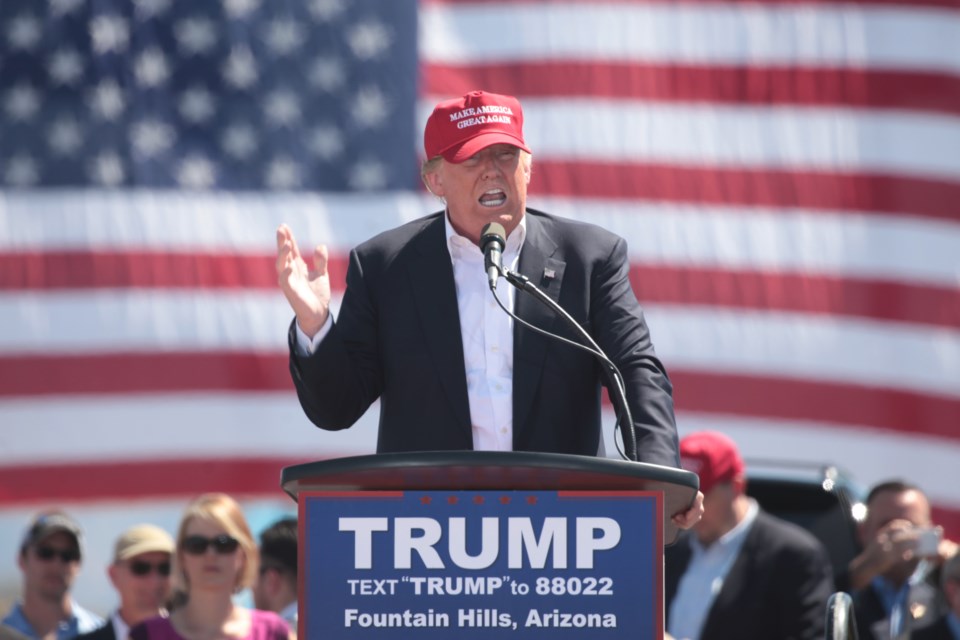BradfordToday and InnisfilToday welcome letters to the editor at [email protected] or via the website. Please include your full name, daytime phone number and address (for verification of authorship, not publication).
Recent discussions out of the Trump administration about annexing Canada as the 51st state may generate headlines, but they have no basis in reality. The constitutional, legal, and political barriers make the idea not just improbable but impossible — at least without Canada’s full consent, which is a non-starter.
For starters, the U.S. Constitution does not allow unilateral annexation of another country. Article IV, Section 3 states that Congress can admit new states into the Union, but only if that state applies for admission. In other words, Canada would have to request statehood — something that is beyond unlikely. Even if, by some miracle, a Canadian government proposed such a move, the process would still require ratification by the U.S. Congress, with all the political and economic negotiations that would entail.
On Canada’s side, the obstacles are even more daunting. Our Constitution Act, 1982 solidifies Canada as an independent nation, and any attempt to dissolve it in favour of American governance would require a constitutional amendment. That means approval from the federal government and at least seven of the 10 provinces representing 50 per cent of the population — an impossible threshold for an idea that Canadians overwhelmingly reject. In fact, getting consensus on anything at the national level is difficult enough; no serious politician would stake their career on such an idea.
Then there’s the British monarch, which remains Canada’s head of state. Before any annexation talk could even begin, Canada would have to remove itself from the Commonwealth, sever its ties to the Crown, and dismantle its current system of government. If a republic debate ever gains traction here, it will be on Canadian terms, not as a prelude to becoming a U.S. state.
Beyond legal and political barriers, the most obvious obstacle is public opinion. There is no meaningful support for joining the U.S. in any region of Canada, regardless of political leanings. Even Alberta, often viewed as ideologically closer to American conservatism, remains deeply Canadian in its identity. Simply put, Canadians are not Americans, nor do they want to be.
And let’s be clear — any attempt to annex Canada by force would be a violation of international law and a declaration of war. The United Nations Charter enshrines the sovereignty of nations, and an aggressive move by the U.S. would spark global condemnation, including from its closest allies.
This is not the first time this idea has surfaced. The U.S. attempted to invade and take Canada during the War of 1812, and by 1814, Canadian and British forces had burned down the White House in response. More recently, 19th century “Manifest Destiny” rhetoric dreamt of Canada becoming part of the U.S., but the idea never gained traction. The reality is that both countries have built a strong, cooperative relationship as equals — not as a future statehood project.
So why bring it up now? Most likely, it’s election-year rhetoric designed to fire up a certain segment of the U.S. electorate that romanticizes expansionist nationalism. But for Canadians, it’s a non-issue. We’re not interested.
Annexation isn’t happening, and anyone suggesting otherwise is living in a fantasy.
Tim Taylor
Horseshoe Valley



